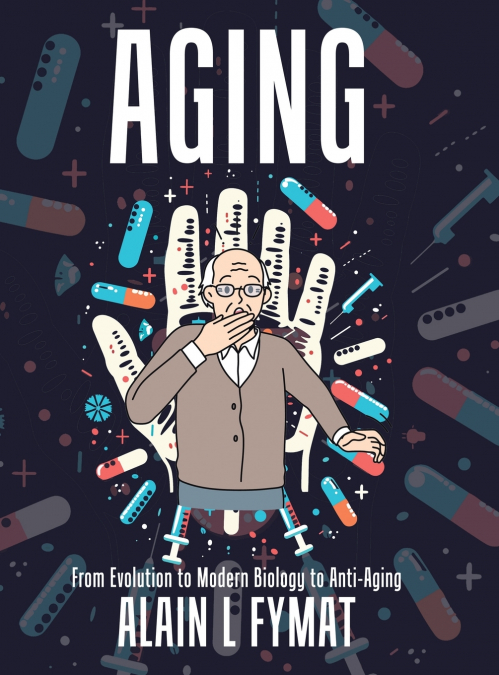
 Librería Perelló (Valencia)
Librería Perelló (Valencia)
 Librería Aciertas (Toledo)
Librería Aciertas (Toledo)
 El AlmaZen del Alquimista (Sevilla)
El AlmaZen del Alquimista (Sevilla)
 Librería Elías (Asturias)
Librería Elías (Asturias)
 Librería Kolima (Madrid)
Librería Kolima (Madrid)
 Donde los libros
Donde los libros
 Librería Proteo (Málaga)
Librería Proteo (Málaga)
What is aging? Simply stated, it is the slow decline of function over time considered to be an inevitable fact of the human condition. As cells divide and reproduce in our bodies, they gradually deteriorate and, as a result, our mental and physical health decline. Recent scientific data show that longevity is associated with the successful management of chronic diseases, not the absence of any disease! The process of aging and its rate are still not fully understood and continue to baffle the medical and scientific communities. Various theories (more than 30 of them) have therefore been posited in unsuccessful attempts to uncover the primary cause(s) of aging. They involve many interdependent and interconnecting genetic, biochemical, and physiological processes. However, they all relate to signs, symptoms, and risk factors that do not reach to the root cause(s) of aging but merely indicate a process. Nonetheless, as their understanding grows, the resulting findings could lead to better health, less disability, greater independence in later life and, potentially, longer lifespans. But, no matter which theory(ies) of aging will turn out to be correct or if, instead, aging may be the partial or total sum of a number of them, the true bottom line is that aging is universal. Fortunately, certain lifestyle factors and predispositions may defer one’s demise to a degree and, at the very least, offer a better quality to the quantity of a lifespan. In this volume, I analyze what is currently known about the aging process including most of the theories of aging advanced so far. I also address the issue of what can be done about aging, covering such aspects as anti-aging behaviors, discussing therapies for retarding or reversing aging, and offering guidelines for healthy aging. In addition, I answer some frequently asked questions, outline some pf the latest developments of research in aging, and summarize the resources available for a healthier and more successful aging.